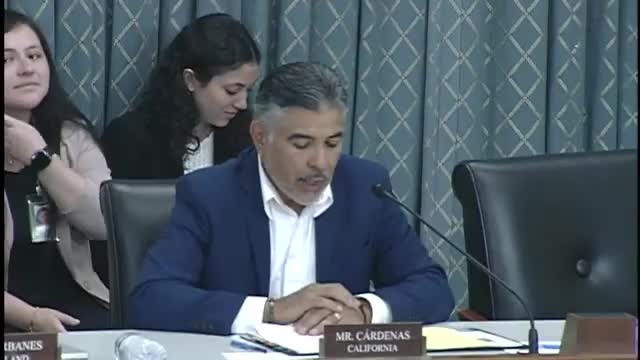CDC's Lifeline Marks Two Years Amid Mental Health Crisis
July 24, 2024 | Energy and Commerce: House Committee, Standing Committees - House & Senate, Congressional Hearings Compilation

This article was created by AI summarizing key points discussed. AI makes mistakes, so for full details and context, please refer to the video of the full meeting. Please report any errors so we can fix them. Report an error »

During a recent government meeting, officials celebrated the two-year anniversary of the 988 Suicide and Crisis Lifeline, highlighting its significant impact on mental health support across the United States. The Lifeline, which has aided millions, is a product of bipartisan efforts and substantial investments aimed at enhancing local crisis response capabilities, including call centers and mobile crisis teams.
Despite these advancements, the meeting underscored ongoing challenges in addressing mental health needs. A 2022 survey revealed that half of American adults reported having a family member who experienced a severe mental health crisis, with over 13 million individuals seriously considering suicide. Officials emphasized the necessity of a comprehensive public health approach to suicide prevention, which includes collaboration with various community stakeholders beyond traditional medical settings.
Dr. Awadi, a key speaker, noted that many individuals who die by suicide do not have a diagnosed mental health condition, indicating the need for broader outreach and education. The CDC's involvement in the 2024 National Strategy for Suicide Prevention was highlighted as a critical step in addressing these issues.
The meeting also addressed the CDC's data modernization initiatives, with concerns raised about accountability and the effective use of over $1 billion in funding. Dr. Layden responded by detailing the progress made in public health data capabilities, emphasizing partnerships with private entities to enhance public health responses.
Additionally, discussions included the CDC's Diabetes Prevention Program (DPP), which aims to reduce the risk of type 2 diabetes among at-risk populations. The program has reportedly helped hundreds of thousands of participants make lifestyle changes to prevent the onset of diabetes.
The meeting concluded with a call for transparency and accountability in public health initiatives, as officials recognized the importance of rebuilding public trust in the CDC and its guidelines. The discussions reflected a commitment to addressing both mental health and chronic disease management through collaborative and evidence-based approaches.
Despite these advancements, the meeting underscored ongoing challenges in addressing mental health needs. A 2022 survey revealed that half of American adults reported having a family member who experienced a severe mental health crisis, with over 13 million individuals seriously considering suicide. Officials emphasized the necessity of a comprehensive public health approach to suicide prevention, which includes collaboration with various community stakeholders beyond traditional medical settings.
Dr. Awadi, a key speaker, noted that many individuals who die by suicide do not have a diagnosed mental health condition, indicating the need for broader outreach and education. The CDC's involvement in the 2024 National Strategy for Suicide Prevention was highlighted as a critical step in addressing these issues.
The meeting also addressed the CDC's data modernization initiatives, with concerns raised about accountability and the effective use of over $1 billion in funding. Dr. Layden responded by detailing the progress made in public health data capabilities, emphasizing partnerships with private entities to enhance public health responses.
Additionally, discussions included the CDC's Diabetes Prevention Program (DPP), which aims to reduce the risk of type 2 diabetes among at-risk populations. The program has reportedly helped hundreds of thousands of participants make lifestyle changes to prevent the onset of diabetes.
The meeting concluded with a call for transparency and accountability in public health initiatives, as officials recognized the importance of rebuilding public trust in the CDC and its guidelines. The discussions reflected a commitment to addressing both mental health and chronic disease management through collaborative and evidence-based approaches.
View full meeting
This article is based on a recent meeting—watch the full video and explore the complete transcript for deeper insights into the discussion.
View full meeting